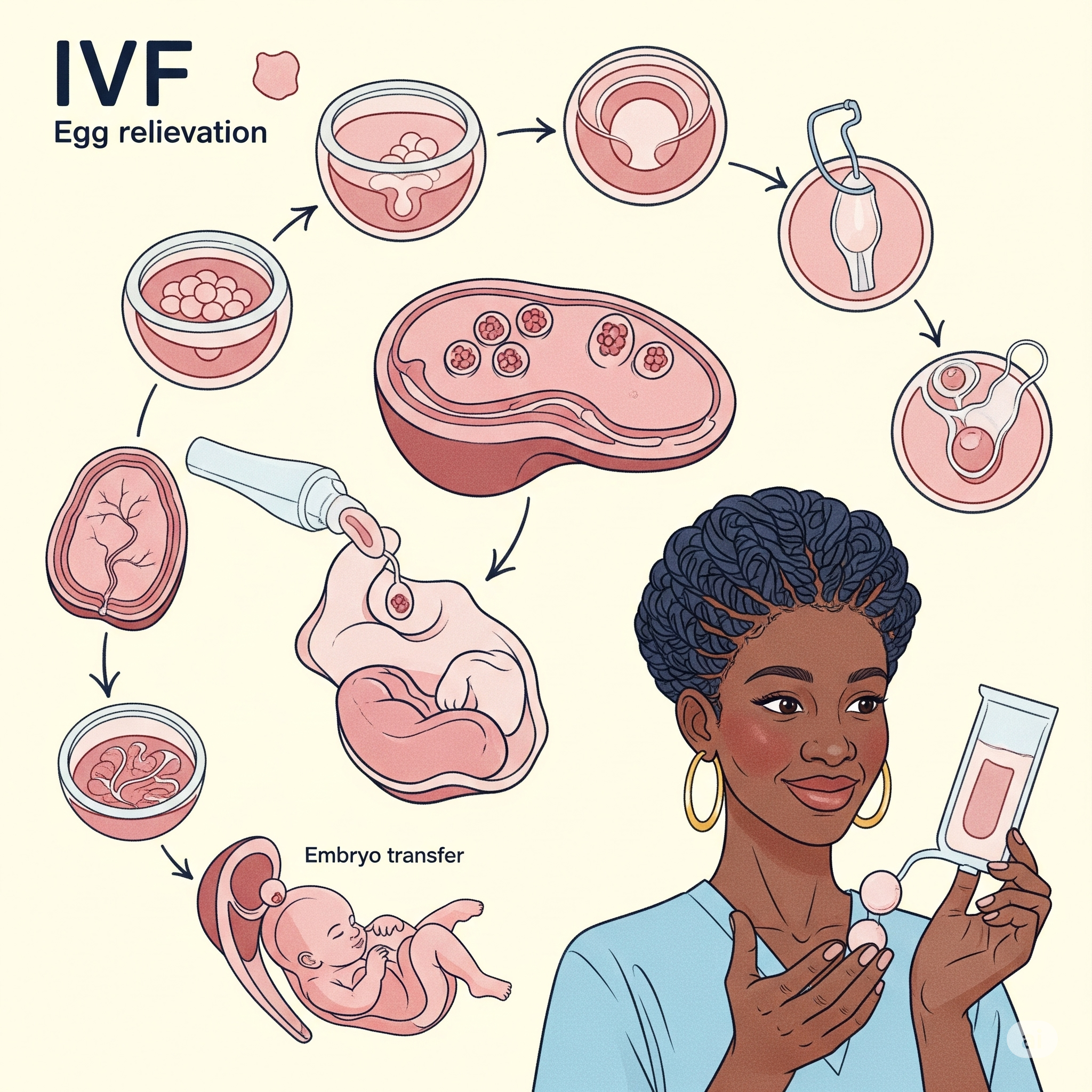

Many women in Kenya are turning to in vitro fertilisation (IVF) as a solution to infertility, but their chances of success are often diminished by one critical factor: age.
Although fertility clinics in the country report reasonable success rates for younger women, a large number of patients only seek treatment after age 35, when the quality of eggs has already declined and IVF becomes less effective, fertility expert Dr Kireki Omanwa told the Star.
“The success rate varies and depends on many things. It depends on the age of the patient, especially the lady. The success rate starts dropping after 35 years,” he said.
After 35, the biological environment becomes less receptive, making it harder for pregnancies to take hold and progress successfully.
The likelihood of success starts to fall significantly and by age 40, drops sharply. Yet in Kenya, cultural stigma, lack of awareness and delays in seeking help mean that many women do not begin IVF until their late 30s or 40s, when their chances are already low.
The trend is similar globally. IVF success rates for women under 35 can exceed 50 per cent, but for those over 40, they often fall below 15 per cent, even in the most advanced clinics.
In Kenya, experts estimate IVF success at around 60–65 per cent for younger women using their own eggs, but just 30–33 per cent for those over 35 and about 10–20 per cent for women above 40.
Omanwa–a fertility specialist at Frontline Medical Consultants on Ngong Avenue–explains that age-related decline in fertility is only one piece of a larger picture.
“But it’s not just about age. The quality of the sperm also matters. If it is poor quality, we have poor quality embryos and these will either not implant or, if they do implant, they may end up having a miscarriage.”
He adds that physical conditions affecting the womb can also interfere with IVF success.
“There can be issues with the womb, the lining, or the cavity for that matter. If there are things growing there, for example fibroids, of course this will inhibit the implantation and the full development of the baby, so it will affect the outcome.”
The immune system also plays a crucial role in whether a pregnancy is sustained.
“The immune system is very important because it protects our bodies from any foreign material. For women, a pregnancy is actually a foreign body, so the immune system has to accept that there is a foreigner who is going to live inside here for nine to ten months and then we are going to co-exist. If the immune system says no, then the IVF process won’t be successful.”
Other factors include hormonal imbalances, underlying health conditions like diabetes and hypertension and autoimmune diseases.
“If the hormone levels are not where they’re supposed to be, we will have implantation failure or loss of the pregnancy,” he said.
“Systemic diseases like high blood pressure and diabetes can affect the outcome. That excess sugar circulating in the system is actually toxic to the baby when the baby is growing in the womb. Autoimmune diseases can make the environment very unforgiving for the embryo. All these things have to be taken into consideration when we are talking about success rates.”
However, Omamwa, who is also president of the Kenya Obstetrical and Gynaecological Society, says on average, IVF success rate is around 40 per cent, which matches outcomes in many developed countries.
Trained in Poland and having worked in London on Harley Street before returning home, Omanwa addressed concerns about the expertise available in Kenya. Many of his colleagues also trained and worked abroad and brought that experience with them.
“What is done in other countries–whether it is in the UK, Germany, America, India, or South Africa–we actually do it here in Kenya. The expertise we have is up to par and our success rates are also up to par. The only thing that we don’t do is cryopreservation or freezing of ovaries for women who have cancer. Otherwise, everything else, we do.”
At his clinic, demand for fertility services continues to rise. He sees patients two afternoons a week and consults with around 15 patients per day.
“So in a year, I possibly see more than 1,000.”











